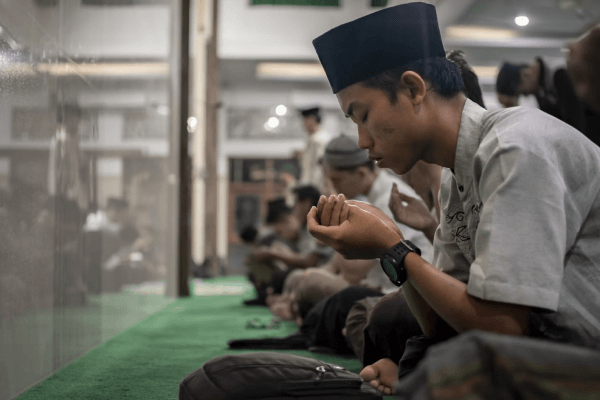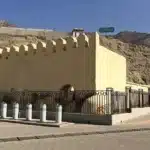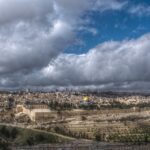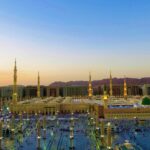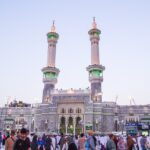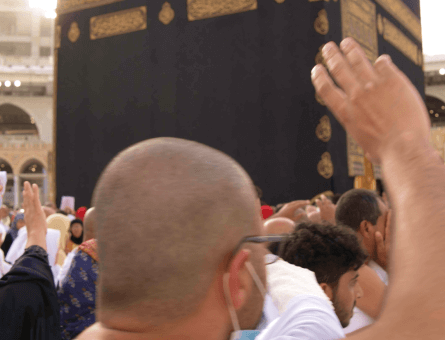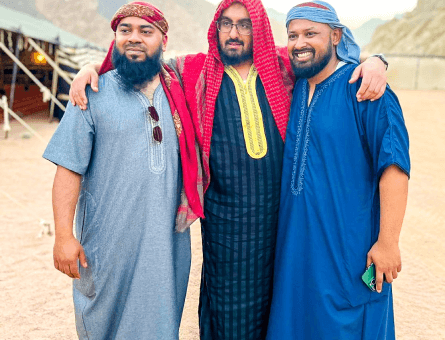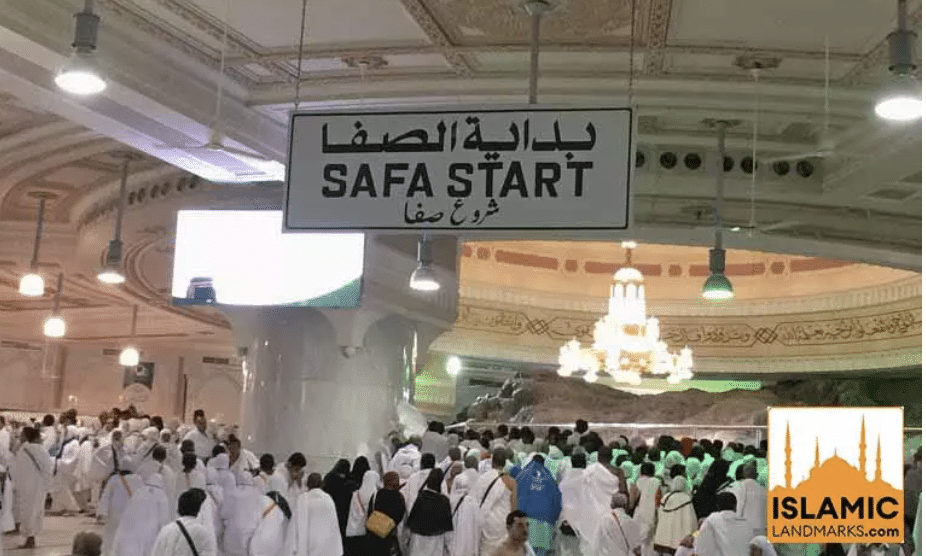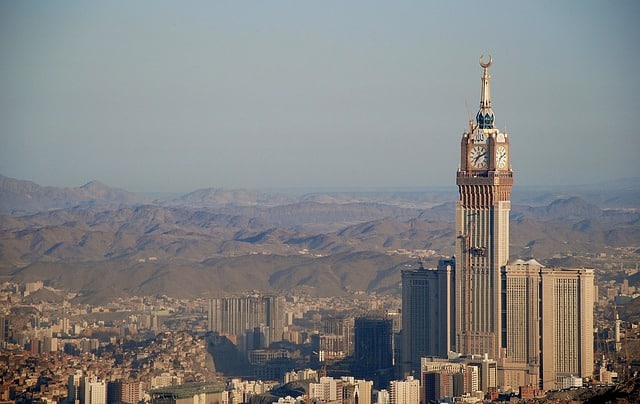Why Is Mecca Important To Muslims? – History, Facts & Significance
Makkah, also spelled as Mecca, is the holiest city in Islam. It holds a unique place in the hearts of over 1.9 billion Muslims worldwide. It’s a place of deep spiritual significance, where believers congregate, seek blessings of Allah (SWT), and fulfill religious obligations as per the Sunnah of the Holy Prophet Muhammad (S.A.W).
Today, the Kaaba, Al-Masjid Al-Haram and other holy sites are the focal points of Islamic faith as millions of pilgrims from diverse backgrounds and walks of life visit them for Umrah or Hajj every year.
In this article, we look at the importance of Mecca in the lives of Muslims, its unique features, and the common religious practices and obligations that center the holy city in Saudi Arabia.
Why is Mecca important in Islam?
Indeed, the first House of worship established for mankind was that at Makkah – blessed and a guidance for the worlds.” – Surah Al-Imran, 3:96
Makkah is more than just a city in Saudi Arabia. It holds a unique place in the hearts of Muslims worldwide for several compelling reasons, mainly the following:
- Birthplace of the Holy Prophet Muhammad (Peace Be Upon Him)
Mecca, or Makkah, is the birthplace of the Prophet Muhammad SAW, the final messenger of Allah. He was born in the Year of the Elephant, marking 570 AD on the Gregorian calendar.
As the “Seal of the Prophets,” his mission was to convey Allah’s message to humanity. The revelation of the Quran and the establishment of Islamic teachings began in Makkah.
- Reception of the First Revelations
Makkah is where the Prophet Muhammad PBUH received the first divine revelations of the Quran. This momentous event occurred in the Cave of Hira, in the hills surrounding Makkah. It marked the beginning of the prophethood and signaled the initiation of the Quranic revelation, which serves as the foundational religious text for Muslims.
The Quran provides comprehensive guidance on faith, worship, morality, and social conduct, making it the compass for Muslims’ lives.
- The Kaaba (House of Allah)
The Kaaba, situated within the confines of the Masjid Al-Haram (the Grand Mosque), is in the heart of Makkah. The black cubic structure is considered the “House of Allah” and is the focal point for Muslim prayer, the Qibla.
Muslims worldwide face the Kaaba during their daily prayers, symbolizing their unity and spiritual connection. The Kaaba’s history is intertwined with the monotheistic legacy, as it was originally built by the Prophet Ibrahim (AS) and his son, Isma’il (AS), dedicated to the worship of the creator of the universe.
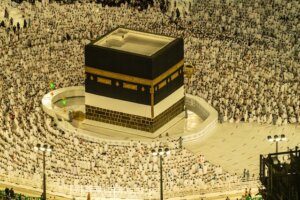
- Umrah and Hajj Pilgrimage
Makkah is the destination for two core pilgrimages in Islam: Hajj and Umrah. Hajj, one of the Five Pillars of Islam, is an obligatory pilgrimage that every Muslim who meets the conditions must undertake at least once in their lifetime.
The rituals of Hajj, which include circumambulating the Kaaba and standing on the plain of Arafat, are performed in and around Makkah. Umrah, in contrast, is a recommended but non-mandatory pilgrimage. Both journeys bring Muslims closer to Allah (SWT) and express devotion and humility.
What is Mecca?
The name “Mecca” has transcended its original reference to the holy city in Saudi Arabia, taking on a broader significance in Western culture.
It symbolizes a place of immense religious importance and any focal point or destination of great significance. Yet, “Why is Makkah important?” is a frequently asked question among muslims and non-muslims alike.
In Western contexts, “Mecca” signifies a location of supreme importance, reflecting the profound impact of the Islamic holy city’s spiritual and historical legacy on global consciousness.
This adaptation underscores its position as a gathering place where people unite for a common purpose or goal, reminiscent of how millions of Muslims gather in the city for religious pilgrimage.
While “Mecca” is used more broadly to evoke a sense of sanctuary or refuge, its primary and most sacred association remains with the Islamic holy city. There, the Kaaba is the central place of worship, and millions of diverse pilgrims congregate yearly for religious obligations.
“Mecca” has thus evolved into a symbol of unity, devotion, and the rich tapestry of Islamic history and faith, reflecting its importance locally and globally.
Where is Mecca located?
Makkah is located in the western region of Saudi Arabia, along the Red Sea coast. It’s inland from the Red Sea and lies approximately 70 kilometers from the port city of Jeddah.
The city is nestled within a valley, with the vast expanse of the surrounding desert adding to its unique geographical and spiritual character.
Why Do Muslims Go to Mecca?
Muslims from across the globe must undertake the pilgrimage to Makkah at least once in their lifetime if certain conditions are met. This pilgrimage is known as Hajj, one of the Five Pillars of Islam.
The Hajj obligation is an essential religious duty and serves as a way for Muslims to seek forgiveness, cleanse their souls, and strengthen their connection with Allah.
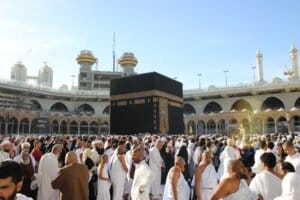
Why Do Muslims Pray Towards Mecca?
Muslims pray towards Mecca because it holds immense spiritual significance as the birthplace of Islam. The focal point of this devotion is the Kaaba, located within the Masjid al-Haram in Mecca.
This practice is deeply rooted in tradition, as it was the direction of prayer chosen by the Prophet Muhammad PBUH under divine guidance.
Praying in the direction of Mecca unites Muslims worldwide in their worship of Allah, emphasizing the central principle of tawhid, or the oneness of God.
It serves as a symbolic manifestation of the unity of the Muslim ummah, reinforcing the idea that all Muslims, regardless of their geographical location, are interconnected by their shared faith and devotion to the creator of the universe.
Why Is Hajj Important in Islam?
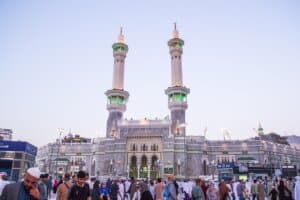
According to Western contexts, Islam is an Abrahamic religion. The Hajj pilgrimage has deep roots with Prophet Ibrahim (AS) and his son Isma’il (AS).
According to Islam, both prophets were commanded by Allah (SWT) to build the Kaaba, which now stands at the heart of the Masjid al-Haram in Mecca.
The construction of this house of worship was to establish the oneness of Allah and emphasize his universal sovereignty.
Hajj became mandatory in Islam as a continuation of this divine command. It serves as a commemoration of the trials faced by Prophet Ibrahim (AS) and his family.
The rituals performed during Hajj, such as circumambulating the Kaaba and standing at the plain of Arafat, are symbolic reenactments of events associated with the prophets.
Thus, Hajj is not merely a set of rites; it is a journey rooted in the shared history of the Abrahamic prophets, designed to strengthen the believers’ connection with Allah (SWT) and purify their souls.
Hajj is obligatory for every financially and physically capable Muslim who meets specific conditions. By undertaking this pilgrimage, Muslims not only cleanse themselves of past sins but also reaffirm their commitment to the monotheistic message of their forefathers and establish a profound sense of brotherhood and equality among themselves.
Similarly, Umrah importance can’t be understated. While it may not be mandatory, it’s still one of the most sacred journeys muslims undertake.
Interesting Facts About Mecca
Below are some interesting facts about Mecca for anyone planning to visit Saudi Arabia for Hajj or Umrah in the future:
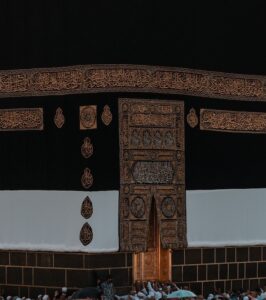
Annual Kaaba Kiswah Replacement
The Kaaba’s covering, known as the kiswah, is meticulously crafted from black silk and adorned with intricate gold embroidery. What’s intriguing is that it’s replaced annually, reflecting the reverence and care with which this sacred structure is looked after.
Exclusive Access to the Kaaba
While the general public can’t enter the Kaaba, a select few hold the keys to its interior. The honor of opening and entering the Kaaba is reserved for the keyholders, usually members of the Bani Shaybah family, who have been entrusted with this responsibility for generations.
Kissing the Black Stone
Embedded in the eastern corner of the Kaaba, the Black Stone, also known as the Hajar al-Aswad, is considered sacred. Pilgrims on Hajj and Umrah obligations often seek to kiss or touch the stone as a symbol of purification.
But did you know the stone wasn’t always black? Originally, it is believed to have been white. Over the centuries and through various events, including exposure to the sins of humankind, it turned black.
Why is Medinah Important in Islam?
Medinah, Islam’s second major holy city, carries immense historical and spiritual significance. In Medinah, the Prophet Muhammad (SAW) found refuge during a pivotal time in Islamic history.
His migration to Medinah, known as the Hijrah, marked the beginning of the Islamic calendar. This city became the birthplace of Islamic governance and ethics, where the first Muslim community was established.
Today, Medinah is home to the renowned Al-Masjid An-Nabawi, the second holiest mosque in Islam. The mosque encompasses the Prophet’s final resting place and is a destination for millions of Umrah or Hajj pilgrims and visitors who come to pay their respects.
Other Holy Sites in Makkah
Below are some of the key holy sites in Makkah apart from the Kaaba and Masjid al-Haram
The Mountains Surrounding Makkah
The hills and mountains around Mecca, such as Jabal Al-Noor, are of immense significance. The Cave of Hira, where the first revelations of the Quran were received by the Prophet Muhammad, is located in these mountains.
The Zamzam Well
The Zamzam Well is a sacred water source located within the Masjid al-Haram. This well is renowned for its continuous flow, even in the arid climate of Mecca. Pilgrims worldwide drink from it and take some home as a blessing.
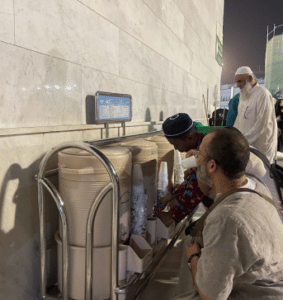
Prophet Ibrahim’s (AS) Footprints
Near the Kaaba, there’s a marker believed to be where the Prophet Ibrahim stood while constructing the Kaaba. It’s a blessed spot where millions of pilgrims pray and seek forgiveness.
Al Muallaa Cemetery
The Al Muallaa Cemetery in Makkah is the final resting place for several distinguished Prophet Muhammad (SAW) family members. Among those interred here are the Prophet’s wife, Khadijah bint Khuwaylid (AS), and his beloved uncle, Abu Talib.
Other Points of Interest in Makkah
While Masjid al-Haram and the other holy sites in Makkah are the primary hotspots for pilgrims and travelers, you can visit other interesting places when you’re done with the religious rituals and obligations. Popular points of interest include:
- Exhibition of the Two Holy Mosques Architecture (Mecca)
This captivating exhibition offers a unique window into the architectural grandeur of two of Islam’s most sacred sites, Masjid Al Haram in Makkah and Al Masjid Al Nabawi in Madinah.
Visitors can explore these magnificent structures’ intricate designs, engineering marvels, and history. The exhibition showcases the evolution of these mosques’ architecture, from humble beginnings to awe-inspiring modern-day structures hosting millions of worshippers.
- Clock Tower Museum
Nestled within the iconic Abraj Al Bait Towers, the Clock Tower Museum provides an immersive experience of Makkah’s history and cultural importance. It delves into the evolution of Makkah from a historic city to a bustling, cosmopolitan metropolis.
Visitors can explore the city’s expansion and history, the Grand Mosque’s development and its surroundings, and the immense cultural significance of Makkah for Muslims worldwide. The museum’s exhibits offer an educational and enriching experience, shedding light on the city’s transformation over the years and its central role in the Islamic world.
Summary – Why is Makkah Important?
Makkah’s significance in Islam is immeasurable. It’s the birthplace of the final messenger of Allah, Muhammad SAW. It’s home to the sacred Kaaba, the focal point of daily Muslim prayers.
Hajj, a religious obligation, draws millions of pilgrims to Makkah annually, emphasizing unity, equality, and spiritual rejuvenation.
Now that you understand the importance of Makkah in Islam,please book your flight to Saudi Arabia to perform Hajj or Umrah with our amazing packages. We pray that Allah SWT opens the door to each of you.
“And proclaim to the people the Hajj; they will come to you on foot and on every lean camel; they will come from every distant pass.” – Quran, Surah Al-Hajj (22:27)
Through His Names
New course with
Ustadh Shabbir Hassan




